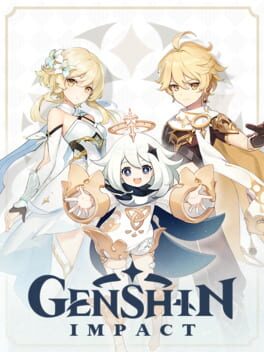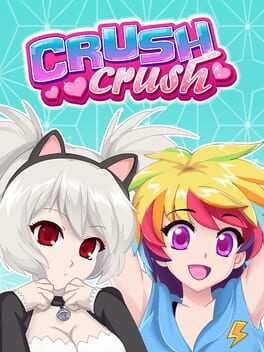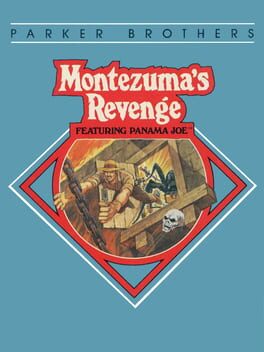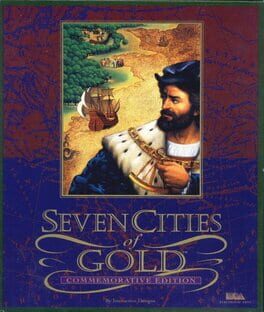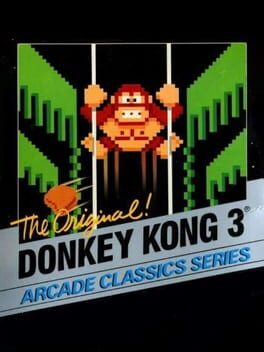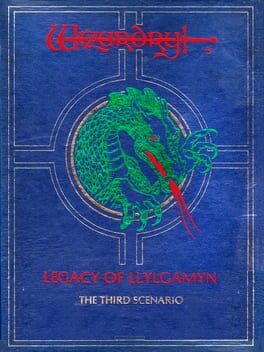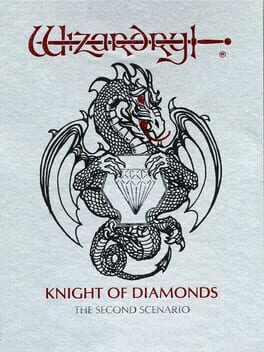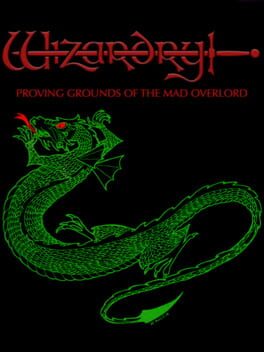blindzero
Bio
Nothing here!
Badges

1 Years of Service
Being part of the Backloggd community for 1 year

Full-Time
Journaled games once a day for a month straight

N00b
Played 100+ games

Busy Day
Journaled 5+ games in a single day

Roadtrip
Voted for at least 3 features on the roadmap

On Schedule
Journaled games once a day for a week straight
143
Total Games Played
000
Played in 2024
000
Games Backloggd
Recently Played See More
Recently Reviewed See More
This review contains spoilers
The Wizardry series has so far improved improved with every entry. The floors of the dungeon are more interesting to map than ever compared to the previous games. In addition, all 6 floors are important to map and relevant to the game. The grinding that plagued the previous entries has been severely cut down as well; with no big boss to gate you unless you had the proper spell, the floors can be travelled much more freely. This also leads to perhaps the best endgame of any Wizardry so far: the final floor really feels like a tense and climactic test of your mapping skills, as you are locked in and your map magic is locked away from you. All in all perhaps the best game in existence at the time it was made, and still amazing to play today.
This review contains spoilers
Console versions of this game are much better than the first game. Five boss fights that scale with the player rather than an endless grind. If not for the forced use of MALOR at the end it would be ideal. The only other minor nitpick that keeps the game from greatness is that many of the floors seem to use a tessellating pattern that made certain areas repetitive. Still, solid improvement and can be recommended over the first game.
This review contains spoilers
The classic game that inspired decades of gaming history, stealing what worked from DnD and PLATO while adding plenty of its own spin and putting it all in the hands of anyone with a computer to play it on. Considering the age of the game and how just about everyone immediately copied it and improved upon it I was surprised that it was as good as it was.
The dungeon map layouts for the first few levels are interesting to explore and map as you go through the proving grounds, and the character creation and development is just simple enough to be intuitive and just complex enough to have depth.
If the whole game was like this early part of the game, focused on exploring and mapping, I would rate the game much higher. However, it is clear the developers, having created an interesting system and levels to play around in, didn't quite know what to do with the game at that point. Thus we get to the main negative about this game: the poor combat design, and the excessive grinding.
Now, to be clear, I don't think the combat in the game is bad on its own terms. It is very simple, but for one thing this was 1980, and for another the main challenge of the game was not winning an individual hard fight but to survive a series of them through a whole expedition and return alive. Do I heal now, or later? Do I use my powerful mage spell now, or preserve it for another encounter in the future? It is not the height of complexity, but these are the questions that you ask yourself as you go through the dungeon.
Many of the spiritual predecessors to Wizardry had no or little endgame. The ability to level your characters higher and higher was enough, and a goal was not necessary for players to have fun. Wizardry opted to change this: the main goal is to descend to floor 10 and kill Werdna to retrieve the amulet. And here is where the trouble comes in: boss fights.
There are two bosses in the game, a first boss on floor 4 and a final boss on floor 10. Both bosses are essentially just level gates for your mage character. If you have level 5 mage spells, you can defeat the first boss. Else, you lose. The final boss is much the same: If you have level 7 mage spells, you win, else, you lose. (Both of these bosses can also be beaten by simply having overlevelled parties, but that would require even more grinding and is in the end an even less charitable interpretation of the game.)
As it is likely that the player will not have characters of this level when they encounter the bosses, after you reach floor 4 and secure a route from entrance to first boss the game shifts from a fun and strategic exploration game to a combat focus with the goal of grinding until the characters can handle the enemies. This is where the game falls off in quality: once you have the game mapped and eliminated the variables, the risk element of the expedition falls. Levelling the characters becomes a repetitive chore. And without the strategic and exploratory elements the combat alone is not enough to carry the game. This is made even worse after you defeat the first boss. Your reward is to unlock an elevator that takes you anywhere between floors 4 and 9; this makes floors 5 through 8 essentially pointless as a party that can beat the first boss can handle floor 9. And from floor 9, it takes very little time at all to discover the entrance to floor 10, meaning that it too, has little point. After all, at this point your only goal is to grind to be powerful enough to fight the final boss, so there's no reason to go to floor where the enemies are weaker. Compound this with floor 10 being essentially a hallway filled with powerful enemies but with the ability to exit the dungeon directly at any time, and its a recepie to have players merely walk back and forth in a hallway grinding for hours.
Wizardry has many good elements. The early portion of the game, featuring exploration and a survival challenge as you map the dungeon, are very enjoyable over 40 years after the game's release. The later half, focused on grinding combat, however, makes it difficult to reccomend today. However, I did, overall, have a good time, and in the context of the time the game was made, it is understandable that the developers did not quite understand what would and would not work: game design barely existed at this point. As such, I think it is still a great experience.
The dungeon map layouts for the first few levels are interesting to explore and map as you go through the proving grounds, and the character creation and development is just simple enough to be intuitive and just complex enough to have depth.
If the whole game was like this early part of the game, focused on exploring and mapping, I would rate the game much higher. However, it is clear the developers, having created an interesting system and levels to play around in, didn't quite know what to do with the game at that point. Thus we get to the main negative about this game: the poor combat design, and the excessive grinding.
Now, to be clear, I don't think the combat in the game is bad on its own terms. It is very simple, but for one thing this was 1980, and for another the main challenge of the game was not winning an individual hard fight but to survive a series of them through a whole expedition and return alive. Do I heal now, or later? Do I use my powerful mage spell now, or preserve it for another encounter in the future? It is not the height of complexity, but these are the questions that you ask yourself as you go through the dungeon.
Many of the spiritual predecessors to Wizardry had no or little endgame. The ability to level your characters higher and higher was enough, and a goal was not necessary for players to have fun. Wizardry opted to change this: the main goal is to descend to floor 10 and kill Werdna to retrieve the amulet. And here is where the trouble comes in: boss fights.
There are two bosses in the game, a first boss on floor 4 and a final boss on floor 10. Both bosses are essentially just level gates for your mage character. If you have level 5 mage spells, you can defeat the first boss. Else, you lose. The final boss is much the same: If you have level 7 mage spells, you win, else, you lose. (Both of these bosses can also be beaten by simply having overlevelled parties, but that would require even more grinding and is in the end an even less charitable interpretation of the game.)
As it is likely that the player will not have characters of this level when they encounter the bosses, after you reach floor 4 and secure a route from entrance to first boss the game shifts from a fun and strategic exploration game to a combat focus with the goal of grinding until the characters can handle the enemies. This is where the game falls off in quality: once you have the game mapped and eliminated the variables, the risk element of the expedition falls. Levelling the characters becomes a repetitive chore. And without the strategic and exploratory elements the combat alone is not enough to carry the game. This is made even worse after you defeat the first boss. Your reward is to unlock an elevator that takes you anywhere between floors 4 and 9; this makes floors 5 through 8 essentially pointless as a party that can beat the first boss can handle floor 9. And from floor 9, it takes very little time at all to discover the entrance to floor 10, meaning that it too, has little point. After all, at this point your only goal is to grind to be powerful enough to fight the final boss, so there's no reason to go to floor where the enemies are weaker. Compound this with floor 10 being essentially a hallway filled with powerful enemies but with the ability to exit the dungeon directly at any time, and its a recepie to have players merely walk back and forth in a hallway grinding for hours.
Wizardry has many good elements. The early portion of the game, featuring exploration and a survival challenge as you map the dungeon, are very enjoyable over 40 years after the game's release. The later half, focused on grinding combat, however, makes it difficult to reccomend today. However, I did, overall, have a good time, and in the context of the time the game was made, it is understandable that the developers did not quite understand what would and would not work: game design barely existed at this point. As such, I think it is still a great experience.
